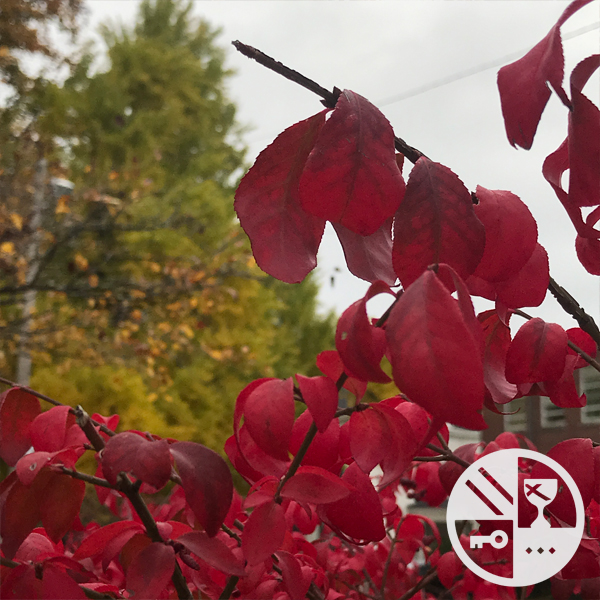Introducing Cairn - Louisville's newest giving circle
Clare Rutz - Youth Minister/Outreach Coordinator
My entire professional life has been built on failures. When I first got going I thought I was going to fix our country’s educational system. Then I taught public school in New York City for a quick second and realized only God himself could take on that task. Then, as many twenty-somethings do, I figured I would take a stab at global poverty. I vetted, visited, and temporarily helped small non-profits across Asia, but I was only as good as my commitment and, at 22, I still wanted to be important. So I moved to D.C. because that’s where important people move. In no time at all I figured out that theoretical work in a cubicle wasn’t really my cup of tea either.
The Peace Corps was my answer and in many ways it still is. My two and a half years in Senegal turned me upside down and inside out. And it was an uncomfortable process.
First, I learned that I will never be a capable farmer no matter how much Wendell Berry I read. Then, I learned that I am no one’s savior. I learned that the good work I always wanted to do is done through trust and understanding and, therefore, relationship. I learned there are certain people in this world who are Christ-like, but they are rarely noticed. And as much as I want to be that kind of person, I may not have it in me, but I can find them, be near them and notice, support and love them.
So when asked, What good can we do? I look to my failures to point me in the right direction.
Four years ago, when there was an unexpected sum of money from the Woodbourne House as it transitioned to affordable senior housing, the honorable David Sprawls piped up and said that we should probably practice what we preach. The amount that was not budgeted for was a total of $33,000 and after consideration and conversation we all decided to put it right back into our community. First, we gave $15,000 to New Roots to help them grow into the organization they are now. In the years that followed, they have received multiple awards and significant funding. I for one believe our initial support to what was then a small and new organization was truly catalytic. Or we just have really good timing.
We then met with Mission Behind Bars, a non-profit that is held dear by many in this congregation, and worked with them as they also looked to grow. We gave them a matching gift of $10,000 over two years to help incentivize new congregations and donors to also give. We just received an email last week saying that their second year of raising these matching funds and growing their donor base has been wonderfully successful and they are hopeful for their future.
We also started the Charlie Thompson Library with media written by, for, and about the LGBTQ community just downstairs thanks to Travis Myles’ leadership.
So much good has come from this outreach fund it would be terrible to see it dry up and never heard from again. So the outreach committee met and ate pizza and discussed how to continue all this good work. And after that very long introduction, I want to tell you what we came up with.
This month, we’re unveiling Louisville’s first public giving circle. What’s a giving circle you ask? It’s a pooled fund that individuals can give to to make their small donation have a big impact. This giving circle in particular will be distributed monthly to small, local organizations that focus on human dignity and serve people on a grassroots level.
To get the ball rolling, the outreach fund is proposing to give $500 every month in matching donations at a 1:2 ratio. So I give $10, it turns into $15. Then 99 other people give $10 and the small organization has a $1500 check that makes a huge difference to their programming and there are 100 people who know more about their work. Even better. I can sign up to be a monthly donor and make a difference across the city all year round. Think about it as another Netflix account, but instead of movies you’re subscribing to social justice and human dignity.
We are living in a time where the underserved are even more vulnerable, but throughout policy change and political shifts, there are those who continue to take care. This task is often thankless, burdensome, and will just barely pay the bills and yet there are defenders of human dignity working at this grassroots level throughout our city. It is imperative, especially as state and federal funding becomes limited, to support our social workers, educators, and counselors so they may simply continue their work.
But hard times affect us all. Many of us are living paycheck to paycheck and followed around by looming student loans or medical bills. It’s hard to part with anything extra, and the question lingers, do they really need it more than me?
The 12 vetted organizations that will receive these funds in 2018 are:
- Coalition for the Homeless
- Survivors of Torture Recovery Center
- Family Scholar House
- Louisville Youth Group
- Louisville Visual Art
- Backside Learning Center
- Mattingly Edge
- Louisville Grows
- Peace Ed
- Louisville Girls Leadership
- Hildegard House
- Food Literacy Project
These organizations serve people where they are and work on the ground. They don’t have ginormous budgets, and yes, they need my $10 more than I do.
It’s also an amazing way for Douglass Boulevard Christian Church to keep giving even after our outreach fund has been spent. In the future, we can look for grants to provide the matching funds as a sustainable option, and it’s another opportunity to extend our stewardship and community beyond these doors.
The giving circle, dubbed Cairn, is an opportunity to turn a $5 donation into something far greater. Your donation stands for action steps and starting local and taking care of our neighbors in a very real way. It stands for collaborative effort and community support. It’s telling those who don’t often hear it that we are grateful they share our home, both the served and those who are serving.
I hope you will join us.
To do just that, you can sign up to give on the website. Or you can join the team that helps spread the word, finds next year’s organizations, and volunteers by emailing hi@cairnlouisville.org.

















